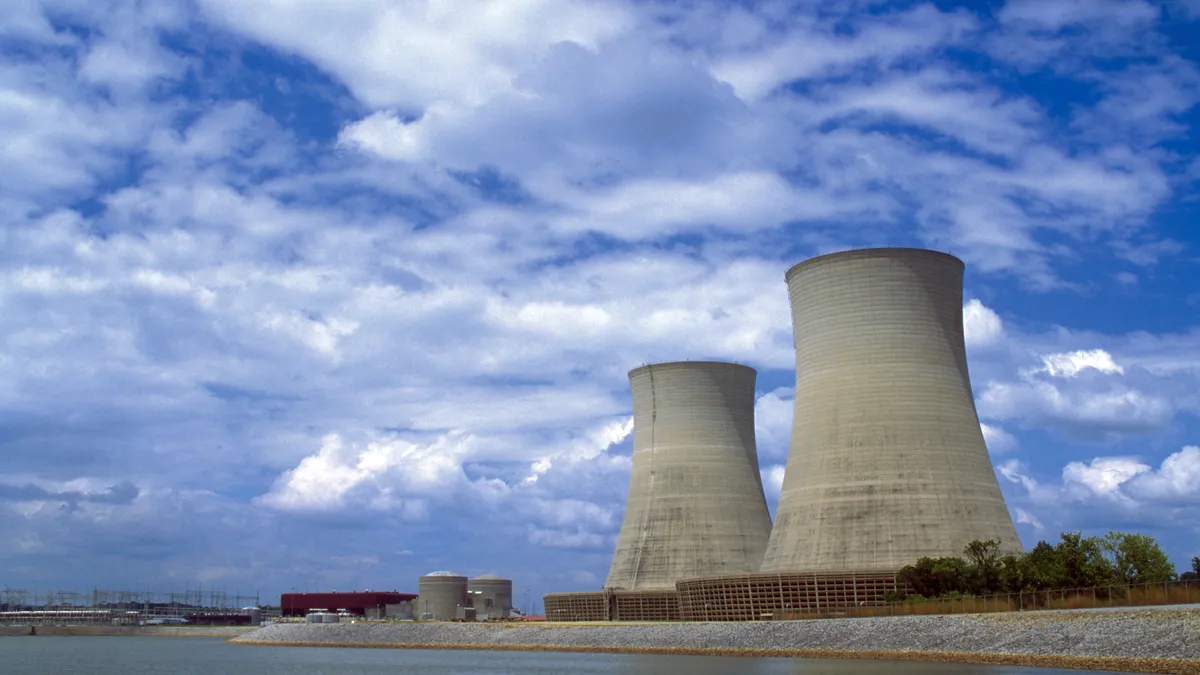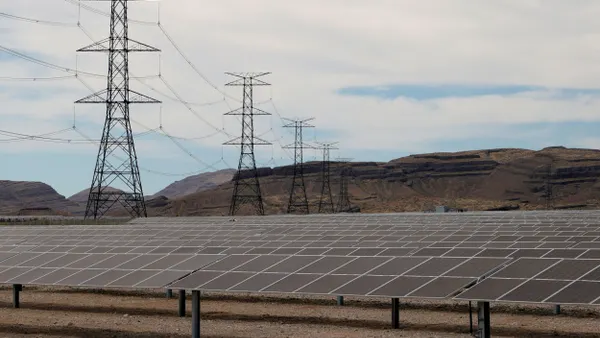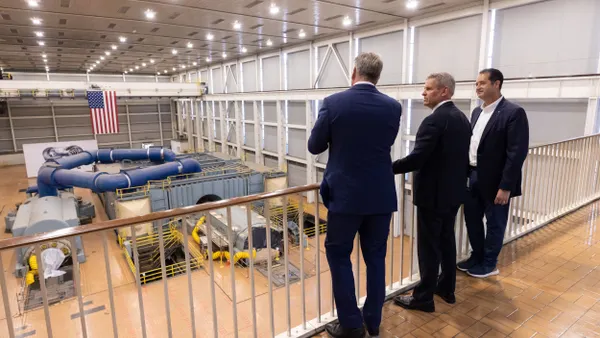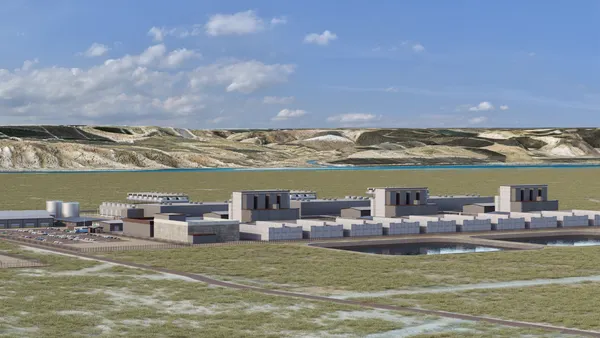Dive Brief:
- The EPA may have dropped carbon capture and sequestration (CCS) requirements from its performance standards for new power plants, Inside EPA reports, over concerns that the technology is not yet viable and the mandates would not hold up to a legal challenge.
- Quoting an "informed source," the website writes that the final draft rule for the New Source Performance Standards (NSPS) does not include a mandate that would have required new coal power plants to install technology that captures and stores carbon dioxide. Sources tell the site that dropping CCS requirements would put the White House on unsteady ground at climate talks in Paris later this year.
- There is only one power plant operating with CCS technology, in Canada, and two coal gasification plants — which convert coal into a cleaner burning gas — in operation. Opponents of the mandate argue neither technology is cost effective or commercially proven.
Dive Insight:
With international climate talks happening later this year, many observers are worried that reports that the EPA has dropped CCS requirements from its final rules for new power plant construction will hurt the American bargaining position and reduce the chance of an emissions deal.
But Inside EPA's anonymous source says the White House is concerned that CCS technology is still not widespread enough to be considered “adequately demonstrated” and “commercially available," two key legal requirements of a new regulation. And the website also reports that the agency has already considered what the NSPS rules would look like without the CCS requirement in a slate of "fallback options" earlier this year.
It appears that delays lays and cost overruns at the Kemper coal gasification facility in Mississippi — a high profile demonstration project for emissions reduction technology — may have spurred EPA to make the decision. South Mississippi Electric Power Association dropped out of that project this week, citing delays and rising costs. Developers of another CCS project, the FutureGen facility, abandoned the project when the federal government pulled funding. Only one plant is operating with CCS technology, in Saskatchewan, and the Kemper facility is only one of two gasification plants in the U.S.
The American Public Power Association has opposed the new source regulations, saying they would “effectively eliminate coal” as a source of generation and lead to ovver-reliance on natural gas. The association also opposed CCS technology specifically, arguing that it had not been proven effective. And the American Coalition for Clean Coal Electricity has estimatted that if the EPA includes CCS in its regulations it could cost the United States $1 trillion.














